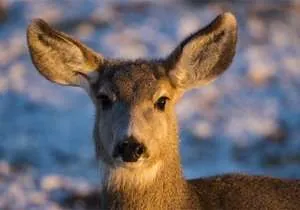Kansas Forest Service will partner with Kansas City area communities to replace trees lost to emerald ash borer
MANHATTAN, Kan. — A Kansas Forest Service community forester has secured a $120,000 grant from the National Association of State Foresters (NASF) and the USDA Forest Service that will support the planting of 500 trees in communities impacted by emerald ash borer.
The cities of Overland Park and Bonner Springs are severely impacted with significant canopy loss due to EAB and are partners in the grant project to restore urban canopy.
Kim Bomberger, KFS community forester, will lead the three-year grant and planting projects. Plantings will begin in Fall, 2021.
“Ensuring that all people in these communities have access to the many benefits that trees provide is a priority of this project,” Bomberger said.
Bomberger added that urban tree canopies can improve human health by absorbing air pollutants, which in turn reduces respiratory and cardiovascular incidents. Ozone levels are also reduced in shaded areas and carbon dioxide sequestered by tree canopies.
“We also find that shaded businesses and residential areas save energy costs and improve living conditions,” Bomberger said.
Bomberger explained that the $120,000-grant will help the communities mitigate the loss of canopy with plantings in heavily impacted parks and diversely populated neighborhoods with a high need for canopy coverage.
“There are three key areas we’ve identified to focus most of the planting efforts. These areas were significantly affected by tree loss due to the Emerald Ash Borer or are areas of economic need which would not have the benefit of landscape beautification without this grant opportunity,” said Amber Vogan, assistant city manager of Bonner Springs.
Bailey Patterson, city forester with Overland Park, said the city has already removed more than 1,000 ash trees from public spaces, mostly along residential streets.
“There are still more than 9,000 ash trees remaining, all of which will likely require removal within the next 5-10 years,” Patterson said. “Green and white ash trees comprised 23% of our residential street trees when EAB entered our county. If 23% of our street tree population is removed and never reforested, then that will have a significant impact on the appearance of the city and quality of life for residents.”
Grant funds were obtained through the 2021 State Urban Forest Resilience (SUFR) Grant Initiative. SUFR grant-funded projects are aimed at improving urban forest health readiness, response and restoration.
Bomberger said replacing lost canopy cover with drought and pest-tolerant species will help to build canopy biodiversity and resilience, benefitting the health and well-being of the 207,036 residents and more than two million people in the metropolitan area.
The KFS grant was one of 18 project proposals that clearly demonstrated a need for funding assistance and included outcomes that aligned with FY 2021 Congressional Directive HR 116‐448 focused on urban reforestation.
-30-
FOR PRINT PUBLICATIONS: Links used in this story
Kansas Forest Service, www.kansasforests.org
About the Kansas Forest Service
The Kansas Forest Service is the nation’s fifth oldest state forestry agency. The agency serves rural landowners, communities, rural fire districts, forest and arboriculture industries, and citizens of the state through its Conservation Tree and Shrub Planting, Fire Management, Community Forestry, Rural Forestry, Marketing and Utilization, and Forest Health programs. The Kansas Forest Service state office is located in Manhattan, Kansas, just west of the campus of Kansas State University. The Kansas Forest Service is housed as an independent agency within K-State Research and Extension. The agency receives its direction from a mission statement that reads: “Care of natural resources and service to people through forestry.”
About K-State Research and Extension
K State Research and Extension is a short name for the Kansas State University Agricultural Experiment Station and Cooperative Extension Service, a program designed to generate and distribute useful knowledge for the well being of Kansans. Supported by county, state, federal and private funds, the program has county extension offices, experiment fields, area extension offices and regional research centers statewide. Its headquarters is on the K State campus in Manhattan. For more information, visit www.ksre.ksu.edu. K-State Research and Extension is an equal opportunity provider and employer.
For more information:
Cassie Wandersee
Communications Coordinator
Kansas Forest Service
785-410-0580
wande@ksu.edu





